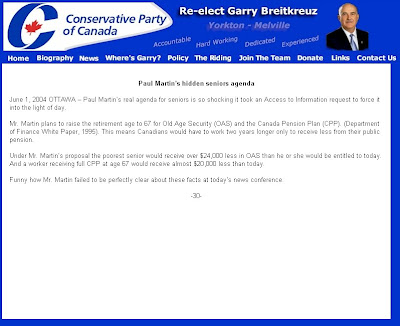I have banged heads with fellow blogger, Jeff Jedras a number of times in some old fashioned
NDP VS Libs battles. HOWEVER, he is 'dead on' with his observations concerning how the MSM is handling the current Vic Toews fiasco:
Friday, February 17, 2012
Vikileaks and the death of the journalist as news gatekeeper
I was in Las Vegas for a work trip and tuned-out of all news from back in Canada, so it was only Friday that I returned and caught myself up on the “Vikileaks” drama, and it was fascinating to read some of the commentary and follow the tweets on the topic, particularly those from hill journalists and political sorts.
I won’t pass judgment on whether or not the information about Vic Toews should have been published or not, except to say it’s not how I would chose to do politics. Which I guess is passing judgment, so there you go. This sort of thing is par the course in modern politics though, and for the Conservatives, who have taken it to new levels, to now wring their hands is silly. And, for the record, it is only an ethical question, and we are talking about publicly available information and documents.
What really interests me though is the reaction of the proverbial “main-stream media” to the Vikileaks story, with an Ottawa Citizen piece attempting to trace the IP address of the “@Vikileaks30 leaker” spurring endless speculation and demands to identify the person or persons responsible. It should be noted that had @Vikileaks30 given their documents to a journalist who chose to publish a story based on them, then the media would be reminding us how important it is to protect the confidentiality of their sources. Even competing outlets wouldn’t try to unmask another journalist’s confidential source. That’s just not cricket, old boy.
What the media reaction to @Vikileaks30 really shows though is how angry, and perhaps frightened, they are about losing their traditional role as the gatekeepers of news, the people that get to decide what we, the unwashed masses, need to know and what we don’t need to know. Journalists are used to being in the know, to having the inside details, the scoop. It helps make up for the low pay, long hours and heavy drinking.
Journalists made judgment calls every day on what is news and what isn’t, what people have a right to know, and what isn’t relevant. It's part of the job in one sense; there's always more news than column inches or air time. And they see it as a public service. But no one elected them as the arbiters of good taste. They’re accountable to no one but their publisher and the shareholders. It’s a lot of trust, and a lot of responsibility.
The internet, blogging and social media are changing all that however. Now you no longer need a printing press or a television or radio station to publish information to the masses. Anyone with an Internet connection can publish anything they want, and potentially find an audience. And the market will, in a way, make its own judgment on its news worthiness. If people find it relevant, they’ll share or re-tweet it and the news finds a wider audience; if they deem it inappropriate it will wither and fade away, perhaps after first being soundly condemned.
What it means, though, is that the role of the traditional media as gatekeeper is drying, if it’s not already dead. With their breadth of reach and size of audience, the regular media is still the fastest way for news to be disseminated to the wider public. But thanks to social media, even if the press deems something “un-newsworthy,” if it gets enough traction online they eventually have no choice but to cover it anyway.
(The full article can be found at
A BC'er In Toronto






























